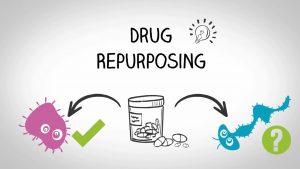
Drug repurposing refers to the process of discovering new therapeutic uses for existing drugs, rather than developing new drugs from scratch. The drug repurposing market is growing rapidly as it offers several advantages over traditional drug development, such as faster approval times, lower costs, and a proven safety profile. The market is driven by the increasing number of failed clinical trials, rising costs of drug development, and a growing demand for personalized medicine. The market is segmented by type of repurposed drug, indication, and region. Key players in the market include pharmaceutical companies, academic institutions, and biotechnology firms.
The drug repurposing market is driven by several factors, including:
- Rising healthcare costs and the need for cost-effective treatments
- Increasing prevalence of chronic diseases
- Growing demand for personalized medicine
- Advances in technology and genomics leading to a better understanding of disease mechanisms
- Government initiatives and funding for drug repurposing research
- The increasing number of failed clinical trials for new drug candidates
- The need for new treatments for neglected diseases and rare disorders
- The pressure to reduce the time and costs associated with the development of new drugs.
These factors have led to an increased focus on repurposing existing drugs for new therapeutic uses, which can shorten the time to market and reduce development costs compared to developing new drugs from scratch.
- Rising healthcare costs and the need for cost-effective treatments
- Increasing prevalence of chronic diseases
- Growing demand for personalized medicine
- Advances in technology and genomics leading to a better understanding of disease mechanisms
- Government initiatives and funding for drug repurposing research
- The increasing number of failed clinical trials for new drug candidates
- The need for new treatments for neglected diseases and rare disorders
- The pressure to reduce the time and costs associated with the development of new drugs.
These factors have led to an increased focus on repurposing existing drugs for new therapeutic uses, which can shorten the time to market and reduce development costs compared to developing new drugs from scratch.
Drug repurposing can be highly effective in some cases, as it can lead to the discovery of new uses for existing drugs. By leveraging existing knowledge about the safety and efficacy of a drug, the development time and costs associated with new drug discovery can be reduced. This can also lead to faster approval and availability of new treatments for patients.
Examples of successful drug repurposing include the use of thalidomide for the treatment of multiple myeloma, sildenafil (Viagra) for the treatment of erectile dysfunction, and metformin for the treatment of polycystic ovary syndrome (PCOS) in addition to its original use for diabetes.
However, it’s important to note that not all drugs that are repurposed will be effective for their new use. Further research and clinical trials are often needed to confirm the safety and efficacy of a drug for its new use, and not all repurposed drugs will make it through the approval process. But overall, drug repurposing holds promise as a cost-effective and time-efficient approach to developing new treatments for a wide range of diseases.
There are several major companies in the drug repurposing market, including:
- Pfizer Inc.
- Merck & Co., Inc.
- Novartis AG
- Roche Holding AG
- GlaxoSmithKline plc
- Sanofi S.A.
- Johnson & Johnson
- AstraZeneca
- Eli Lilly and Company
- AbbVie Inc.
These companies are involved in developing and commercializing drugs that have been repurposed for new therapeutic uses, and they also invest in research and development to identify new uses for existing drugs. The drug repurposing market is highly competitive, with these companies competing for market share and positioning themselves to meet the growing demand for cost-effective treatments for a wide range of diseases.
Contact:
David Correa
5933 NE Win Sivers Drive
205, Portland, OR 97220
United States
USA/Canada (Toll Free): +1-800-792-5285, +1-503-894-6022
UK: +44-845-528-1300
Hong Kong: +852-301-84916
India (Pune): +91-20-66346060
Fax: +1(855)550-5975
help@alliedmarketresearch.com
About Us
Allied Market Research (AMR) is a full-service market research and business-consulting wing of Allied Analytics LLP based in Portland, Oregon. Allied Market Research provides global enterprises as well as medium and small businesses with unmatched quality of “Market Research Reports” and “Business Intelligence Solutions.” AMR has a targeted view to provide business insights and consulting to assist its clients to make strategic business decisions and achieve sustainable growth in their respective market domain.

